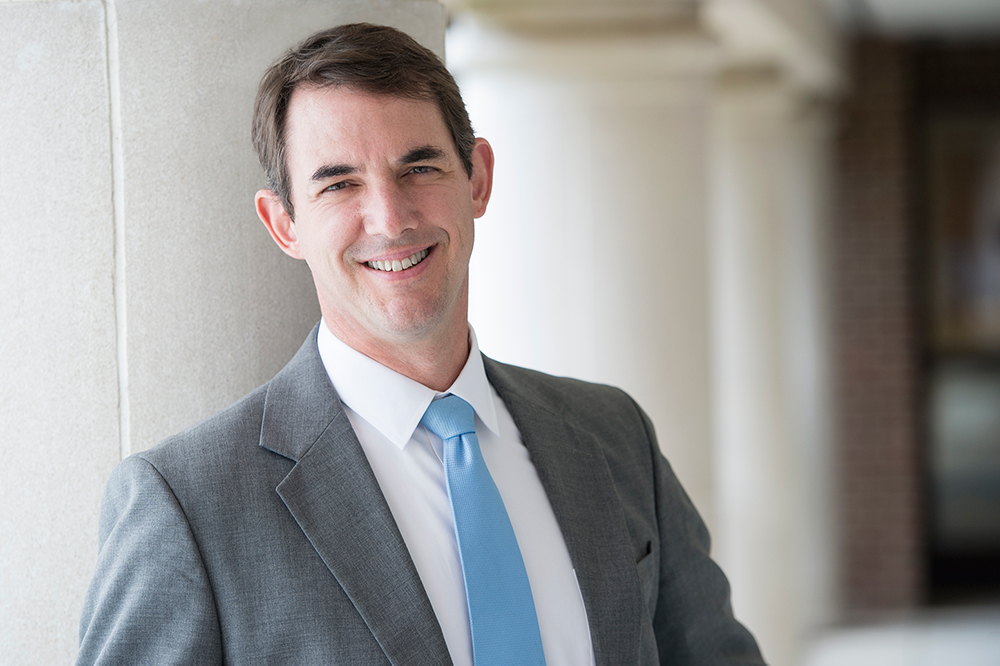
- This event has passed.
Jonas Monast – Natural Resources Law as a Model for Biotechnology Governance | GES Colloquium

GES Colloquium Home | Fall 2019 MediaSite Live-Stream | YouTube Library (Past Colloquia)
Natural Resources Law as a Model for Biotechnology Governance
Speaker: Jonas Monast, JD, C. Boyden Gray Distinguished Fellow, UNC School of Law
Profile | CV | jmonast@email.unc.edu
Abstract
Advanced gene editing techniques are new, but many of the conflicts presented by the techniques are not. Disputes over resource use, alteration, and preservation are recurring themes in natural resources law. Although existing laws do not contemplate the ability to reorder ecosystems via gene editing, there are established regulatory systems designed to address risks of extinction, balance competing ideologies, and incorporate interests of future generations. This presentation will discuss the emerging conflicts between biotechnology governance and natural resources management, and explore how existing natural resources laws can inform biotechnology governance challenges.
Related Publications
Jonas J. Monast, Governing Extinction in the Era of Gene Editing, 97 N.C. L. REV. (2019). https://papers.ssrn.com/sol3/papers.cfm?abstract_id=3420948
Jonas J. Monast, Editing Nature: Reconceptualizing Biotechnology Governance, 59 B.C. L. REV. 2377 (2018). https://papers.ssrn.com/sol3/papers.cfm?abstract_id=3143270
Speaker Bio
Jonas Monast is the C. Boyden Gray Distinguished Fellow at the UNC School of Law and directs the Center for Climate, Energy, Environment & Economics (CE3). His work focuses on climate change mitigation, aligning energy and environmental policy goals, and the intersection between natural resources and emerging technologies. Prior to joining the Carolina Law faculty, Monast directed the Climate and Energy Program at Duke University’s Nicholas Institute for Environmental Policy Solutions and taught courses on energy and environmental issues at Duke University’s School of Law and Nicholas School of the Environment. Monast has also worked as an attorney in the Corporate Social Responsibility Practice at Foley Hoag LLP, as a congressional fellow for the late Senator Paul Wellstone, and as legislative counsel for the Center for Responsible Lending. Monast received his BA from Appalachian State University in 1995 and his JD in 2002 from the Georgetown University Law Center.
WordPress database error: [Unknown column 'wp_tec_occurrences.start_date' in 'SELECT']SELECT SQL_CALC_FOUND_ROWS wp_posts.*, CAST( wp_tec_occurrences.start_date AS DATETIME ) AS event_date
FROM wp_posts LEFT JOIN wp_term_relationships ON (wp_posts.ID = wp_term_relationships.object_id) LEFT JOIN wp_postmeta ON ( wp_posts.ID = wp_postmeta.post_id AND wp_postmeta.meta_key = '_EventHideFromUpcoming' ) LEFT JOIN wp_postmeta AS mt1 ON ( wp_posts.ID = mt1.post_id )
WHERE 1=1 AND wp_posts.ID NOT IN (13678) AND (
wp_term_relationships.term_taxonomy_id IN (43,70,149,316,718)
OR
wp_term_relationships.term_taxonomy_id IN (45,47)
) AND (
wp_postmeta.post_id IS NULL
AND
( mt1.meta_key = '_EventStartDate' AND CAST(mt1.meta_value AS DATETIME) >= '2026-02-15 21:34:59' )
) AND wp_posts.post_type IN ('post', 'page', 'attachment', 'tribe_venue', 'tribe_events', 'tribe_event_series') AND ((wp_posts.post_status = 'publish'))
GROUP BY wp_tec_occurrences.occurrence_id
ORDER BY event_date ASC, wp_posts.post_date ASC
LIMIT 0, 3